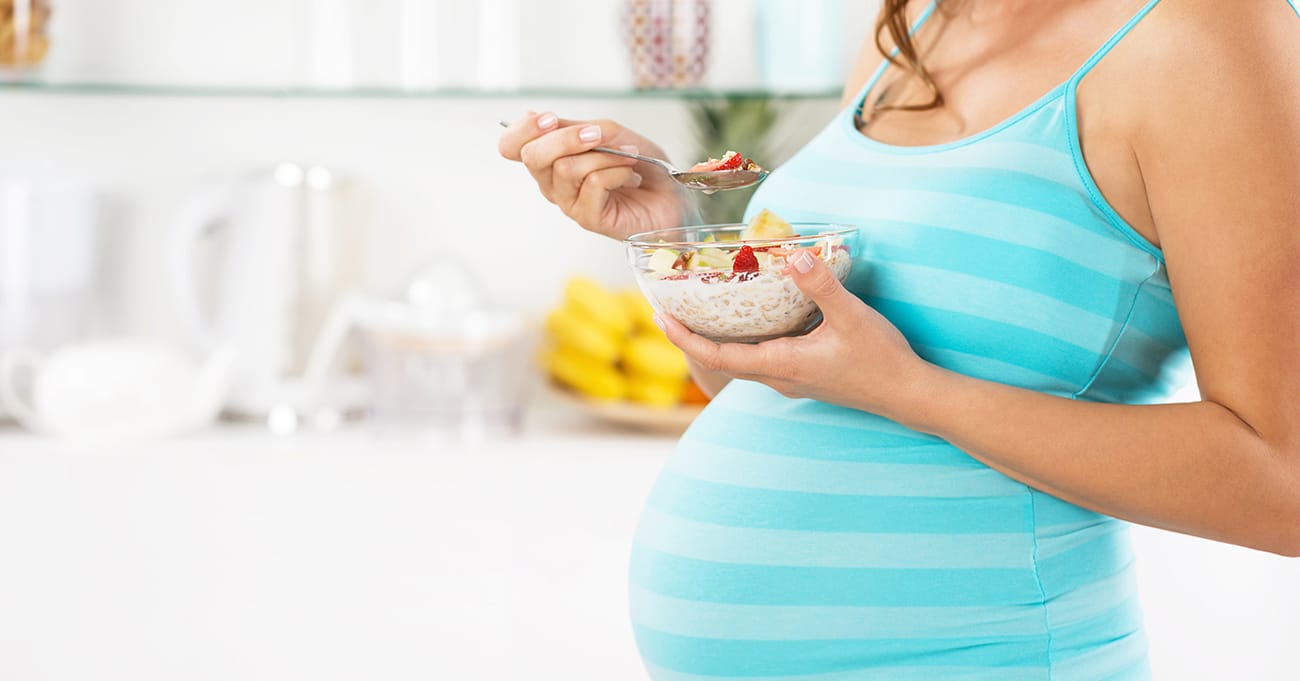The opinion is that what a woman eats during pregnancy has a significant impact on the taste preferences of her unborn child. We decided to check if such confidence is confirmed by scientific data.
Questionwhether he programs his nutrition Pregnant food preferences of the unborn child, judging by the thematic forums, excites many women. IN Media regularly Appear publications About communication products In the maternal diet and the tastes of the future baby. The fact that his mother is largely formed by his mother’s food addictions, also reports The official portal about a healthy lifestyle under the Ministry of Health of the Russian Federation.
To begin with, we agree that official terminology will be used in the text: an embryo or embryo will be called the body until the ninth week of intrauterine development, the fetus from the ninth week until birth, from the moment of birth, a child or baby.
The first sensations that are formed in the embryo are tactile. The resource of “what to expect” the author of the world bestseller “what to expect when you expect a child” and the popularizer of science Hadei Murkofof reportsThat already at the age of eight weeks at the embryo, sensory receptors are formed on the face, mainly in the area of the lips and nose. Next - at the age of about 18 weeks - Appears Hearing: The fetus hears both internal sounds (the heartbeat of the mother, the sound of her peristalsis), and external. Taste receptors, as well as sensory ones, Formed In the embryonic period: By the eighth week of pregnancy, they are already Related With neurons of the brain responsible for the transmission of taste sensations. However, the embryo can not feel tastes, since their recognition requires taste bulbs, which develop only in the 15th week. After that, the fetus will feel the first taste in its life, swallowing a brackish amniotic fluid (amniotic water). Depending on the gestational age, the fetus Swallowing from 200 to 500 ml per day, and in recent weeks of bearing the volume of swallowed liquid can reach a liter. Despite the fact that the mother’s digestive system is separated from the digestive system of the fetus, separate components of the food consumed by a woman fall into an amniotic fluid. However, the impressions of the food obtained in the uterus by the unborn child are significantly different from those to which we are used to, since there is no important component of any dish - its aroma transmitted through the air.
The results of one of the first research On the relationship of nutrition during pregnancy and taste preferences of newborn, conducted by American scientists from a non -profit independent scientific institution - the Monell Chemical Sensation Center in Philadelphia, were published in the journal Pediatrics in 2001. They invited 46 women to the project in the third trimester of pregnancy, who planned to feed the child with breast milk after childbirth, and divided them randomly into three groups. Those who hit the first group for three weeks in a row for four times a week drank 300 ml of carrot juice and did not drink it (as well as avoided carrots) during lactation. Those who got into the second group were asked to refrain from using carrot juice and carrots during pregnancy, but they were offered 300 ml of carrot juice per day for two months of lactation. The third group of women did not drink carrot juice and refrained from carrots in the last trimester and during lactation. In an article with the results there is no information on how women-volunteers ate to participate in the experiment.
The taste addictions of babies began to be tested after they turned 5 and a half months. None of them have never been fed by carrot juice or any food containing carrots. The experimenters offered children cereal flakes, diluted either with water, or carrot juice. The conclusions about how much the children like this or that product were made on the basis of external observations during feeding (the child is turned off or not, whether the food is spilled, whether he screams). Most of the children whose mothers drank carrot juice during bearing, like children whose mothers used carrot juice during lactation, flakes with carrot juice were to their taste, and that group of babies, whose mothers completely refrained from carrot juice, demonstrated mainly negative reactions.
Based on the data obtained, scientists concluded that babies learned the usual taste and therefore demonstrated such loyalty to it. Experts believe that in this way it is possible to facilitate the introduction of complementary foods and a further transition to solid food, but they did not study how these children would perceive carrots in subsequent years. In the article 2016, scientists from the same center of chemical sensations of Monell notedthat the diet of a pregnant woman rich in fruits and vegetables programs the unborn child to give preferences to such a style of food. Experts see this as an evolutionary component - the fetus “remembers” the most common and guaranteed safe products before birth. At the same time, Julie Mennella, one of the authors of both research, Notesthat "many kids will still make an sour face at the sight of broccoli - regardless of how much the mother ate this product during pregnancy."
A systematic review of research published in 2019 showedthat the fetus can “remember” not only the taste of vegetables and fruits. Spices such as garlic or anise are also recognized as a baby after birth. Also, in retrospective studies that entered the review, it was shown that children whose mothers used alcohol during pregnancy remember well and recognize its smell after birth. However, neither in this review, nor in any other scientific works in the base of scientific publications Pubmed and Google Scholar, it was not possible to find research on whether it is possible to educate love for products such as meat and meat products, fish and seafood, cereals and cereals, eggs, milk and dairy products, bread and pasta, nuts and fungi.
Some Researchers Tried find Correlation Meanwhile, how healthy was the mother’s diet during pregnancy, and how healthy the child’s food preferences will be. Scientists watched women and their children over the course of different intervals of time: from nine months to four years. Children whose mothers during pregnancy preferred a healthier diet (fruits and vegetables, fish, dairy products, more diversity) also preferred such a food style, and not sweetened drinks and confectionery. However, it is extremely difficult to transfer the data to the child’s nutrition style throughout life, since the observation was carried out by a limited period of life. For example, having become pregnant, a woman could abandon harmful foods and fast food, took out a child, “accustoming him to a fairly healthy diet, and having given birth, after a while she returned to unhealthy diet, showed him a younger child and“ retrained ”him.
However, one pattern There is definitely: children whose mothers used many processed products, sweetened drinks, semi -finished products and refined carbohydrates during pregnancy were more prone to gaining excess weight in adolescence than their peers. Moreover, experiment On animals, he showed that consumption during gutting “garbage” food (products with a high content of fat and/or sugar, but with a small amount of dietary fibers, protein, vitamins, minerals) changed the rewarding system in the brain of the offspring. Pregnant rats were fed with unhealthy human foods: walnut paste, peanut oil, chocolate bars, chips, sweetened flakes and fat fast food. The system of remuneration of the offspring of these animals was less sensitive to unhealthy foods, the rats needed more sugar and fats to get the same level of dopamine that the descendants of rats received from the “garbage” food, whose mothers adhered to the rates of diet.
Thus, some programming of the taste preferences of the unborn child is really possible during the period of intrauterine development. However, it is important to take into account that all studies known at the moment both in humans and animals assumed regular use of certain food, and not episodic. That is, neither a box of donuts, nor a whole container of ice cream, eaten once during the bearing, do not program the child to exclusively non -exhaust nutrition. Similarly, a single use of broccoli or carrots will not make a fan of healthy food from the baby. Moreover, studies are concentrated on preferences of infants and Toddler, and by adolescence, tastes can change significantly. The whole pregnancy is important, and it is better to adhere to the principles of proper nutrition all your life without abuse processed meat, fast food and sweetened drinks.
Image on the cover: Intermountin Healthcare

Most of the truth
Read on the topic:
- Is it true that cognitive abilities are reduced during pregnancy?
- Is it true that listening to classical music by a pregnant woman has a positive effect on the fetus?
- Is it true that Soviet athletes were forced to get pregnant in order to bring forms to the competition to the peak?
- Is it true that frogs were successfully used to determine pregnancy?
If you find a spelling or grammatical error, please inform us of this, highlighting the text with an error and by pressing Ctrl+Enter.






